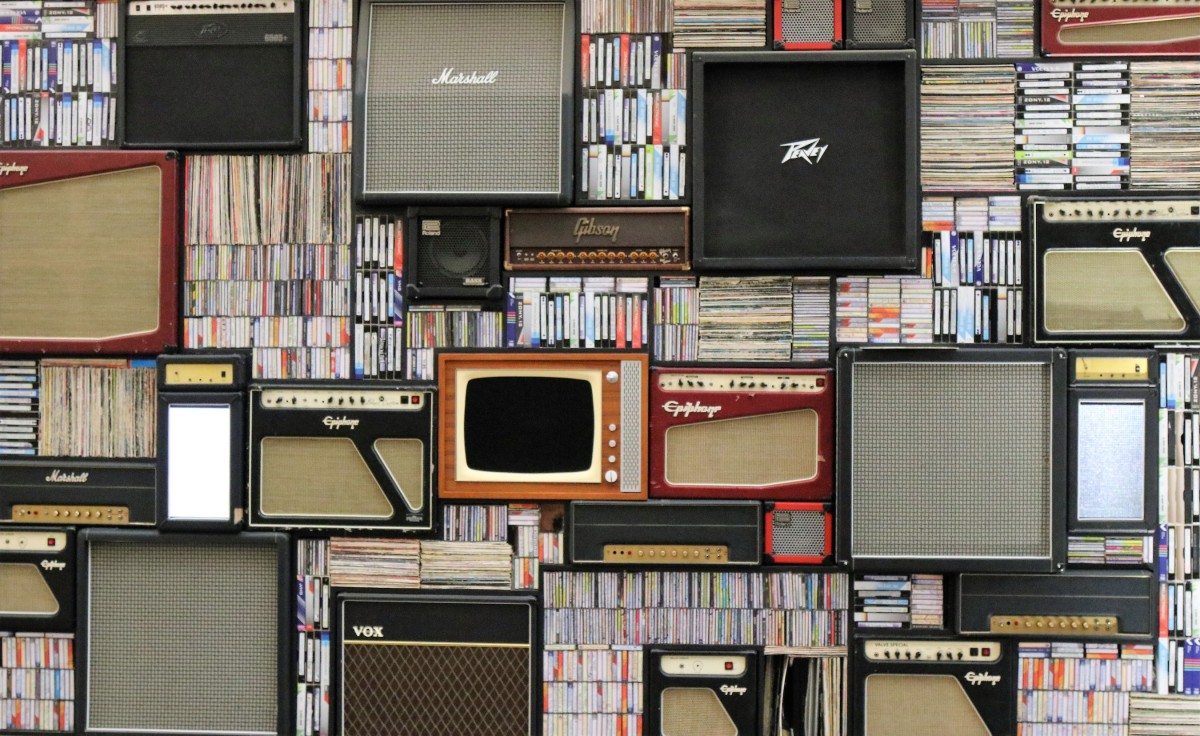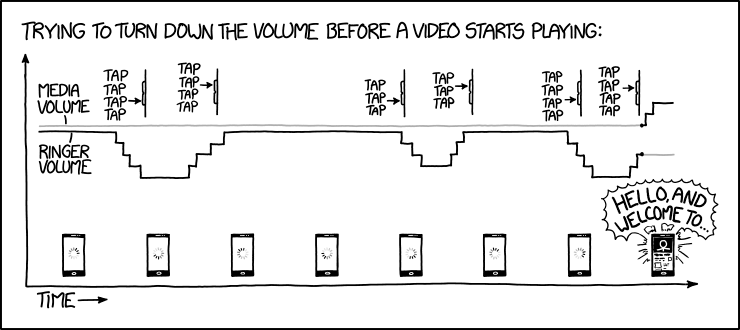Does Jaron Lanier follow blogs? Where does he get his news? How does he learn about Meltdown/Spectre?
Word of mouth was the original form of communication. Before there were books, people could only tell stories to share information. The collective hive mind of civilization would do their best to spread knowledge equally from one person to the next. Verification of stories could only be carried out collectively as groups of people could ensure what they believe was true. One could add Individual color a story to show creativity but ultimately lead to deviations from the original idea.
Fast forward to books. Once we mastered the skill of preserving information in physical objects the amount of our collective knowledge exploded. We could remember things across generations, and even without coming into contact with the person or people who first transcribed their ideas. We could pull from philosophers, physicists, mathematicians, composers, playwrights, and doctors to develop deeper ideas and advance our understanding.
What is the hive mind in the world of books? It was still among the people reading these works who pulled from their own experiences and created their own interpretations. Remixing their learnings into new forms of intelligence.
Today is another progression. We go beyond having all the knowledge in the world documented and at our fingertips, to peering into the minds of everyone on the internet. Social media, like Twitter, amplify ideas only for an instant, as the next thing comes along and yanks at our attention.
(This is no different than before when we spread stories across the world, or documented our understanding of nature.)
We go where the thought leaders go. And when rapid reactions and quick wit are incentivized, we miss out on the deep thinking required to keep progressing forward. As Lanier mentions, where are all the Woodward and Bernstein’s these days? Deep investigative journalism is becoming a thing of the past. Instead our big stories take the form of the aggregate. Pulling the voices of all perspectives involved. And taking down multiple people.
Continuing the thought, how can one create new ideas and seek blue oceans? Part of the success of the web (an any technology for that matter) is the externalities spawning new industries out of the original innovation. Like cryptography, it takes a lot of work to come up with a solution, but once public, the idea is easily verified. It’s the “why didn’t I think of that moment” you get when watching Shark Tank.
So how can we do it? Why is music from 90s and 00s so similar in sound? Are we bound to digitally rehash all of history? To find out, lets think about some of the new ideas stemming from web 2.0.
Well one more digression. To do so, lets start with some digital rehashes: Airbnb -> hotels. Lyft -> taxis. Wikipedia -> Encyclopedia. Ebay -> Thrift store. Amazon -> Bookstore, grocerystore, restauraunt brick and mortar. These are all hugely successful companies that replaced what existed before. I think what’s missing from Lanier’s manifesto is the added value web 2.0 tech brings to previous implementations. However, he does highlight what’s lost in the transformation. (there is more to talk about here, but I’m getting off track)
What is new thought. Is a review of a book just adding to the noise? How can we ever learn if we do not discuss our thoughts and opinions with others? There is value to rehashing work if the idea can stand for something greater. A new version of Unix? Ok sure. But openly available for all to improve and understand? This is novel and moves society forward. Lanier is concerned with the side effects of open culture and I agree with him on the aspect of sustainability (via employment, how do you make a living working on open source?), but how do we build cathedrals if we don’t have the tools?
Part of Lanier’s concern stems from the abstraction of humankind. Kevin Kelly’s one book theory, for example. And it is important to maintain human individuality and creativity. So how do we keep from abstracting the person behind the creation as we move to an aggregated world? People no longer know which studio produces a movie or TV show, unless it’s from Netflix. Netflix advertises their creations, and everyone else’s are abstracted to a title, image, and caption.
Context Collapse
There is a recent episode of the Ezra Klein Show with Lanier. Instigated by the release of Lanier’s new book, the two discuss all sorts of things including VR, music, Facebook, blogs, and podcasts. The most intriguing thread was on the topic of social media’s influence in collapsing context of the things people create. They didn’t know who coined the term, but it seems to have been either danah boyd or Michael Wesch (see below), although it might as well have been Lanier.
The basic idea is this (as nicely described by Joel on Software):
Here’s what happened with the 140 characters. You would start out having some kind of complicated thought. “Ya know, dogs are great and all? I love dogs! But sometimes they can be a little bit too friendly. They can get excited and jump on little kids and scare the bejesus out of them. They wag their tails so hard they knock things over. (PS not Huskies! Huskies are the cats of the dog world!)”
Ok, so now you try to post that on Twitter. And you edit and edit and you finally get it down to something that fits: “Dogs can be too friendly!”
All the nuance is lost. And this is where things go wrong. “@spolsky what about huskies? #dontforgethuskies”
Ten minutes later, “Boycott @stackoverflow. @spolsky proves again that tech bros hate huskies. #shame”
By the time you get off the plane in Africa you’re on the international pariah list and your @replies are full of people accusing you of throwing puppies out of moving cars for profit.
The context for Joel’s thought is his decision to give up Facebook and Twitter for 2018. (Isn’t it odd how things come in threes? Reading Lanier, Context Collapse, Joel on Facebook & Twitter). His reasons for doing so are exactly what Klein and Lanier discuss in the podcast. You just lose the human connection when everything we say and do is mashed up, chomped into a sound bite, and thrown around far outside the initial context for the idea.
And I realize I’m constantly doing that know. I haven’t quite figured out how to include quotes and references to others when developing new thoughts and creating new things. I have to keep exploring. Which leads to…
A basis for further understanding
A quick search lead me to this post from danah boyd on coining context collapse. danah boyd talked about the term back in 2013, referencing her thesis from 2002. So the idea, while not new, was new to me. This topic is a rabbit hole, and I have just scratched the surface. I need to go off to read, watch, and listen. I will return soon.
from danah:
From Michael Wesch:
P.S.
I’ve fallen victim just now. I scoured the web for an hour following links to uncover new and interesting things to read. Then I took it all out of the context I was in and distilled my findings into a nice tidy list. I’m grappling with how the onslaught of Ben Thompson’s Aggregation Theory can mesh with avoiding context collapse via boyd/Lanier (the three should do a podcast together). Does pulling together sources and finding key themes inherently strip the human side of what people create? Or are we bound to keep mashing up ideas. Certainly all new things come from the history that preceded, but how do we balance this growing from this influence with remembering where we came from?
To do research, you take all the mind space of the internet open 100 tabs, make some progress, then save it across all services to pick up again tomorrow. Just with this topic alone, I scattered material to YouTube, Kindle, Instapaper, iBooks, and OneNote. What in the world!? How do people keep any semblance of a train of thought when the best technologies are designed to keep us stretched in multiple directions. Where does the context remain after distilling your work into buckets and silos? This frustrates me, With all the learning one can do on the internet, why is it so unnatural and inhuman? What if the internet was set up more like college, where thoughts and ideas are shared amongst new learners and experts, instead of like a kindergarten classroom where things may be haphazardly thrown everywhere with no sense of where they came from?
There is more to this thread, but I need to dig deeper. I have my materials and my thoughts. Now I just need to stay focused. Keep my mental state and remember the context of where it all began.













!["Do not pretend, if you live in LA or in New York, that just because you live in a diverse city that you are now protected. In fact, you may be worse off because you see things every day. Your brain has to notice [biases]." "Do not pretend, if you live in LA or in New York, that just because you live in a diverse city that you are now protected. In fact, you may be worse off because you see things every day. Your brain has to notice [biases]."](https://static.pexels.com/photos/48734/pexels-photo-48734.jpeg)